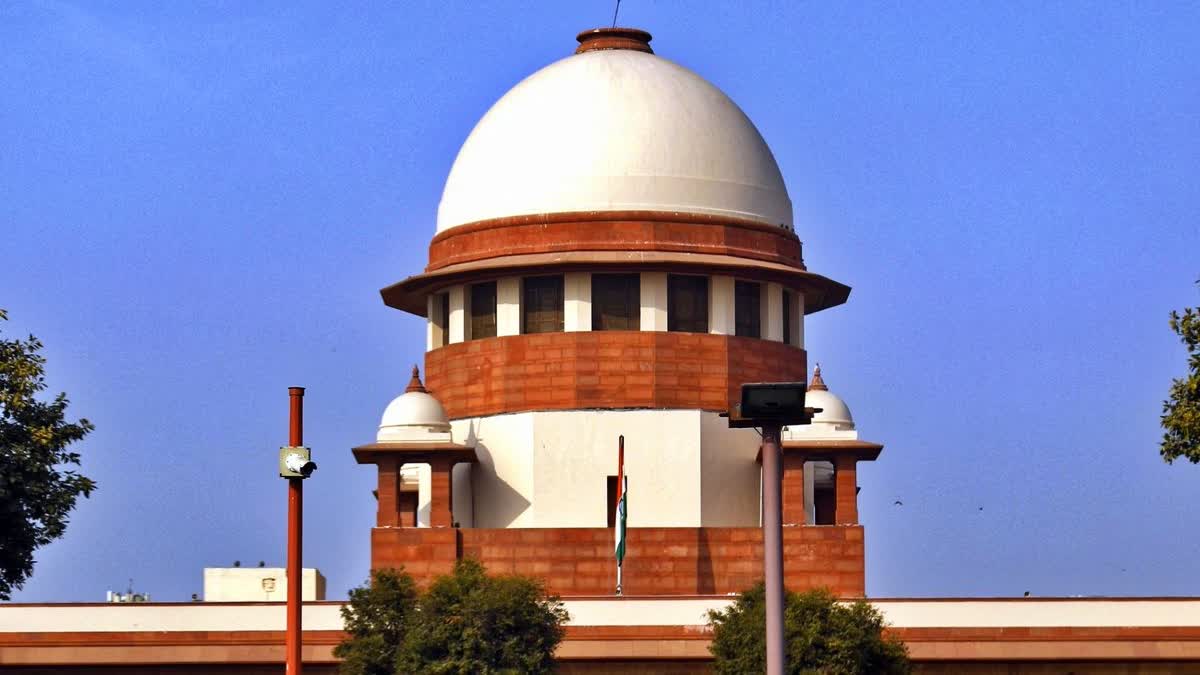New Delhi: The Supreme Court has said that much like bail, the grant of anticipatory bail is to be exercised with judicial discretion, while setting aside the anticipatory bail granted by high court to a proclaimed offender (PO), facing a charge under Section 364 IPC (kidnapping or abducting in order to murder) carries a term of imprisonment for life or rigorous imprisonment of ten years and fine.
The top court disagreed with the high court that the respondent, a PO, was entitled to ‘reform and course correct’. A bench comprising justices Ahsanuddin Amanullah and S V N Bhatti said the court is cognizant that liberty is not to be interfered with easily and more so, when an order of pre-arrest bail already stands granted by the High Court.
The bench said: “Yet, much like bail, the grant of anticipatory bail is to be exercised with judicial discretion. The factors illustrated by this court through its pronouncements are illustrative, and not exhaustive. Undoubtedly, the fate of each case turns on its own facts and merits”.
The bench said the facts and circumstances of the present case, it was not proper for the HC to have granted anticipatory bail to the respondent and the logic of “the high court does not commend itself to us”.
The bench observed that the HC placed reliance on Arnesh Kumar v State of Bihar, (2014) to the effect that where the offence is punishable with imprisonment for a term which may be less than seven years or which may extend to seven years, whether with or without fine, there is to be no automatic arrest.
“However, Section 364, IPC carries a term of imprisonment for life or rigorous imprisonment of ten years and fine. We are a bit perplexed as to how, despite addition of Section 364, IPC, the High Court took the view that Arnesh Kumar would aid the respondent in his quest for pre-arrest bail”, said justice Amanullah, who authored the judgment delivered on August 29, on behalf of the bench.
The top court said the high court lost sight of the fact that the respondent was a declared proclaimed offender and the high court noted that it was not dealing with the prayer seeking quashing of the proclamation proceedings as the same were not made part of the petition before it.
The respondent was declared a proclaimed offender on February 5, 2021, and sought anticipatory bail from the high court only in October, 2021.
The top court said the declaration of the respondent as a proclaimed offender, and such declaration subsisting on the date of high court order, “we are unable to agree with the high court that the respondent was entitled to ‘reform and course correct’”.
The bench said the respondent, without first successfully assailing the order declaring him as a proclaimed offender, could not have proceeded to seek anticipatory bail. “Looking at the factual prism, we are clear that the respondent’s application under Section 438, CrPC should not have been entertained, as he was a proclaimed offender”, said the bench, while setting aside anticipatory bail granted to Dharamraj.
The top court judgment came on an appeal by Haryana government against the High Court of Punjab and Haryana order, granting bail to the respondent in December 2021.
The respondent is accused in an FIR registered on July 31, 2020, under various sections of the IPC, including section 364. The state government said the respondent having been declared a proclaimed offender, grant of indulgence under Section 438 of CrPC was erroneous and misplaced. It was submitted that there is enough evidence to show his complicity and further, based on this very order, other co-accused persons have been granted the benefit of anticipatory bail, which does not serve larger public interest.
The top court said: “the Impugned Order granting anticipatory bail to the respondent is set aside. The respondent shall surrender before the Court concerned within four weeks from today and may seek regular bail which will be considered on its own merits without being prejudiced by the present judgment”.



